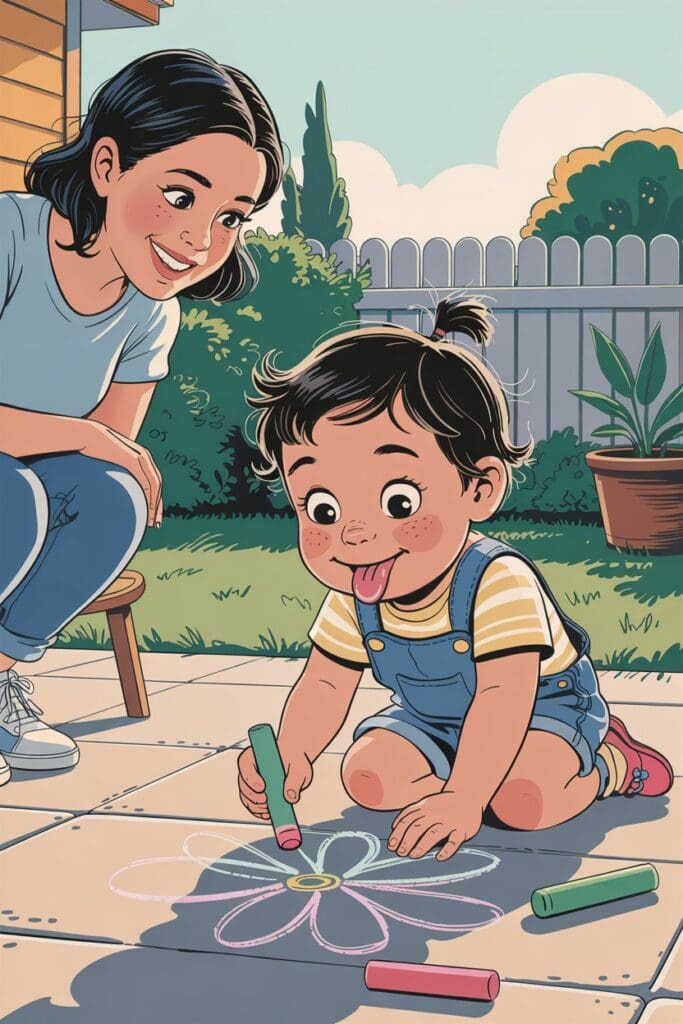12 Intentional Parenting Tools to Help You Raise Connected Kids
Parenting in today’s fast-paced world can feel overwhelming — but having the right intentional parenting tools can make all the difference. Intentional parenting isn’t about being perfect. It’s about being present, purposeful, and proactive in how you guide your children through life.
If you’re looking for real strategies to parent with more patience, connection, and confidence, you’re in the right place. These intentional parenting tools are designed to empower you every step of the way — even when life gets chaotic.
Let’s dive into the best resources to help you embrace intentional parenting with ease!
Heads up: This post may include affiliate links. As an Amazon Associate, I earn from qualifying purchases—at no extra cost to you. Full privacy policy and disclosure here.

What Are Intentional Parenting Tools?
Intentional parenting tools are resources — like books, apps, courses, and practical strategies — that help parents make mindful choices in raising their kids. Instead of reacting to challenges, intentional parenting encourages thoughtful responses based on your long-term goals for your child’s growth.
Some examples of intentional parenting tools include:
- Parenting workbooks
- Positive communication guides
- Online courses like Positive Parenting Solutions
- Apps for emotional regulation
- Inspirational quote decks for daily reflection
The right tools help you parent with intention, even on the hardest days.
Why Are Intentional Parenting Tools Important?
Parenting is a journey full of ups and downs. Using intentional parenting tools helps you:
- Strengthen emotional connection
- Foster independence and resilience
- Set clear and consistent boundaries
- Model calm communication
- Build a positive home environment
If you want to raise happy, well-adjusted kids, intentional parenting tools are essential. They give you the structure and support you need without adding more chaos to your life.
Related: What Makes A Child Happy?

12 Best Intentional Parenting Tools
Here’s a closer look at tools that can support your intentional parenting journey.
1. Positive Parenting Workbooks
Workbooks designed around positive parenting principles help you reflect, plan, and stay consistent. These guides often include journaling prompts, behavior tracking, and communication exercises.
Recommended tool: The Positive Parenting Workbook
[Amazon Affiliate Link]
Related: The 5 Pillars Of Positive Parenting You Need To Know
2. Parenting Books That Inspire Change
The right books offer both strategies and encouragement. One powerful tool? Reading expert-backed parenting advice written with compassion.
Top picks:
- How to Talk So Kids Will Listen and Listen So Kids Will Talk (Affiliate link)
- The Whole-Brain Child by Daniel Siegel
More Ideas: 7 Must-Have Positive Parenting Books
3. Positive Parenting Solutions Course
This course is one of the best intentional parenting tools out there. Created by parenting expert Amy McCready, it’s packed with video modules, printable resources, and real-world strategies for parenting without yelling or nagging.
Related: Why You’ll Love The Positive Parenting Solutions Online Course
4. Emotion Regulation Apps for Parents and Kids
Apps like Smiling Mind or Breathe, Think, Do help kids practice mindfulness, emotional labeling, and calming techniques. These intentional parenting tools are great for building emotional intelligence from an early age.
5. Parenting Affirmations and Inspirational Quotes
Parenting is hard — daily affirmations can keep you centered. A deck of positive quotes or a printable set you can post on the fridge works wonders.
Start with this collection: 200 Inspirational Parenting Quotes
6. Redirection Strategies
Redirection is a cornerstone of intentional parenting. Instead of punishing behavior, you gently guide your child toward acceptable alternatives — teaching, not punishing.
Learn more here: How To Use Redirection In Positive Parenting
7. Family Connection Activities
Simple games, conversation starters, or even a family gratitude journal can build meaningful bonds. These intentional parenting tools strengthen trust and communication naturally.
8. Positive Discipline Techniques
Learning gentle but firm discipline methods, like setting clear expectations and offering choices, gives your child security and respect.
Related: Quick Positive Parenting Tips For Better Behavior
9. Time-In Spaces
Instead of traditional “time-outs,” creating a calming “time-in” space helps your child self-regulate emotions.
These spaces often include:
- Comfort items (blankets, stuffed animals)
- Calm-down bottles
- Emotion charts
10. Practical Toddler Listening Tools
If you’re parenting toddlers, effective listening tools are a must. Picture schedules, visual timers, and first/then boards help young kids understand expectations clearly.
Helpful Read: How To Get Your Toddler To Listen Without Yelling
11. Setting Family Values and Vision
Clarifying your family’s core values acts as an internal compass. A printable worksheet where you outline family priorities (like kindness, responsibility, honesty) helps guide day-to-day parenting decisions.
12. Reflective Parenting Journals
Journaling about your wins and struggles builds self-awareness and emotional regulation. Reflection is one of the most powerful intentional parenting tools you can develop.
How To Choose The Best Intentional Parenting Tools For Your Family
Choosing the right tools comes down to three key factors:
- Your child’s age and stage
- Your parenting goals (connection, discipline, communication)
- Your family lifestyle (busy schedules vs. slower pace)
Start small. Pick 1–2 intentional parenting tools from this list and integrate them into your daily routines. Consistency beats perfection every time.

FAQ About Intentional Parenting Tools
What are the best intentional parenting tools for busy parents?
Quick tools like parenting apps, printable affirmation cards, or a short online course like Positive Parenting Solutions are great options for busy parents.
How do parenting workbooks help me parent more intentionally?
Workbooks offer guided reflection, help you stay consistent with strategies, and create actionable plans for connection and discipline.
Can toddlers benefit from intentional parenting tools?
Absolutely! Tools like redirection, visual schedules, and positive discipline strategies help toddlers thrive within safe, loving boundaries.
How do I use intentional parenting tools daily?
Choose 1–2 small actions, like using calming apps during transitions or reflecting for 5 minutes before bed, to build habits over time.
What’s the easiest intentional parenting tool to start with?
A daily parenting affirmation or a simple time-in space are easy to implement and can have a huge positive impact.
Final Thoughts: Parenting With Purpose Made Simple
Being an intentional parent doesn’t mean having a perfect, Pinterest-worthy life. It means showing up, again and again, with purpose, even when things feel messy.
By using simple but powerful intentional parenting tools, you can build deeper connections, teach emotional resilience, and raise kids who feel secure and loved.
Start small, stay consistent, and celebrate every win — big or small.
You’ve got this!
